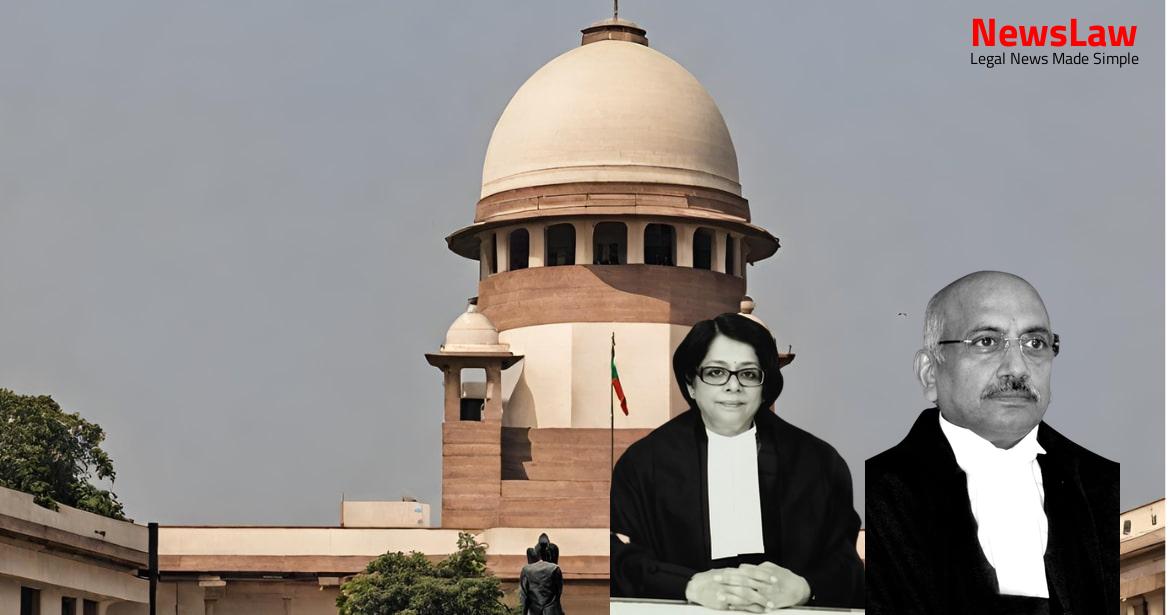Explore the ongoing legal saga concerning the preservation of crucial elephant corridors in Tamil Nadu. The court’s in-depth legal analysis and decisions are pivotal in addressing habitat protection and mitigating human-elephant conflict. Stay tuned for updates on this significant environmental and wildlife conservation case.
Facts
- The Government of Tamil Nadu appointed an Exploratory Committee to explore the possibility of acquiring lands for elephant corridors.
- An organization called ‘In Defence of Environment and Animals’ filed a petition to keep elephant corridors free from encroachment.
- Several resorts were found operating illegally in the elephant corridors, leading to court directions for closure/sealing and submission of necessary approvals.
- Actions were taken to remove electric fences and barbed wire from the corridor premises to facilitate elephant movement.
- The Project Elephant initiative addresses issues of human-animal conflict and provides welfare for captive elephants.
- Challenges faced by elephants include habitat destruction, encroachments, and man-made barriers.
- The District Collector and Expert Committee played key roles in highlighting the importance of elephant corridors and taking necessary actions.
- Various writ petitions were filed regarding the legality of the Government Order on elephant corridors.
- Resort owners and land occupiers in the corridor area faced eviction and sealing of properties due to unauthorized occupation and construction.
- The District Collector submitted reports and took actions as directed by the courts to address encroachments and protect elephant movement.
- Other private land owners directed to vacate lands within the notified ‘elephant corridor’
- State Government to take actions against resort owners and residents
- Prohibition on illegal construction and new fencing in the elephant corridor area
- State Government to identify the Elephant Corridor within one month with the help of Forest Department and NGOs
- Publication of the Elephant Corridor map in local newspapers with details of private lands within the corridor
- Intimation of proposed Elephant Corridor to local Panchayats
- Expert Committee’s mandate did not impinge upon the Wildlife Act boards
- Direction to resort owners and state’s PCCF for preservation of the elephant corridor
- Strict adherence to provisions of forest rights act in case of evictions from the corridor
Also Read: Ensuring Procedural Justice: Blacklisting in Government Tenders
Arguments
- The petitioners argue that the areas notified as elephant corridors by the State Government do not align with authoritative studies on historic corridors in Sigur Plateau
- Elephants require large areas for grazing, which need to be rotated to prevent overgrazing and allow vegetation to regenerate
- The need for land, infrastructure, and energy for the growing population has fragmented elephant habitats
- There is a discrepancy in acreage between the Expert Committee’s recommendations and the State Government’s G.O.
- Corridors help elephants intermingle, preventing conflicts and ensuring genetic diversity
- The Plan of Action Report by the District Collector is deemed fallacious and illegal by the petitioners
- Increasing fragmentation of forest habitat forces elephants to roam farther for resources
- The petitioners claim their lands do not fall within the elephant corridor and object to the impugned G.O. and actions of the District Collector
- Existing corridors are being destroyed, leading to habitat fragmentation and human-elephant conflicts
- The petitioners contest the scientific accuracy of the Expert Committee’s Report and the newly expanded corridor areas under the G.O.
- The appellants also argue their resorts and establishments do not fall within the historic elephant corridors identified
- The High Court’s factual findings on the presence of elephants and human-elephant conflict near the appellants’ resorts are upheld
- The petitioners claim the addition and deletion of lands in the G.O. is arbitrary and illegal
- The appellants allege that there is a substantial variance between the acreage recommended for acquisition by the Expert Committee Report and the acreage in the impugned G.O.
- Objections received in response to a newspaper advertisement were rejected by the State Government, leading to the allegation of arbitrariness.
- The District Collector is accused of sealing the resorts of the appellants after rejecting their submitted documents showing approvals and title.
- Allegations of the District Collector exceeding the scope of a previous court order by sealing resorts and not just removing electric fences and barbed wire.
Also Read: Analysis of High Court’s Dismissal of Second Appeal
Analysis
- The State Government of Tamil Nadu has been directed to regulate land use, especially for hotels/resorts, in the Eco-Sensitive Zones.
- Elephant dung provides nourishment and acts as a breeding ground for insects, aiding in ecological balance.
- Corridors in the Sigur Plateau region are crucial for connecting habitats and sustaining elephant populations.
- Elephants are considered a ‘keystone species’ and play important ecological roles like landscape architects and seed dispersal agents.
- Legal interventions are necessary to protect wildlife corridors from threats posed by commercial activities and habitat fragmentation.
- Preservation of elephant corridors is essential for maintaining biodiversity, gene pool variance, and ecosystem balance.
- The State Government has the power to protect forests and wildlife, as seen in the case of notifying the elephant corridor in private forest lands.
- Recent declarations of areas as Eco-Sensitive Zones indicate a growing recognition of the importance of preserving wildlife habitats.
- Wildlife corridors, like those for elephants, play a crucial role in reducing habitat isolations and sustaining diverse ecosystems.
- The Wildlife Act and other environmental laws aim to restore ecological imbalances caused by human actions.
- The Constitution of India mandates the protection and improvement of the environment, forests, and wildlife.
- Court decisions have prohibited activities like tree felling to safeguard natural resources.
- Immediate and effective action is crucial to prevent irreversible environmental damage.
- Preservation of flora and fauna is vital for human survival, reflecting an urgent need to address extinction and environmental deterioration.
- The acceptance of the ‘Precautionary Principle’ as part of Indian law emphasizes the need for caution in environmental matters.
- The appellants claim that non-electric fences and fences beyond the notified elephant corridor area were removed by the District Collector.
- The court proposes to appoint a 3-member Inquiry Committee to investigate the factual objections raised by the appellants.
Also Read: Land Sale Agreement Appeal: Legal Consideration of Additional Evidence
Decision
- Objections can be raised by concerned parties before the authorities
- Inquiry Committee has the discretion to decide location for inquiry proceedings
- State Government to provide secretarial assistance and support to Inquiry Committee within four weeks
- Inquiry Committee authorized to appoint temporary staff and fix their salaries
- State Government to pay salaries of staff appointed by Inquiry Committee
- Inquiry Committee to consider objections filed and give parties opportunity to be heard
- Parties allowed to submit documents in support of their contentions
- Appeals disposed with parties bearing their own costs
- Full cooperation from State Government and district level authorities required for Inquiry Committee
- Consultation with Chairman of Inquiry Committee for remuneration payment
- Appellants and aggrieved persons can file objections before Inquiry Committee within four months
Case Title: HOSPITALITY ASSOCIATION OF MUDUMALAI Vs. IN DEFENDENT OF ENVIRONMENT AND ANIMALS AND ORS (2020 INSC 597)
Case Number: C.A. No.-003438-003439 / 2020



